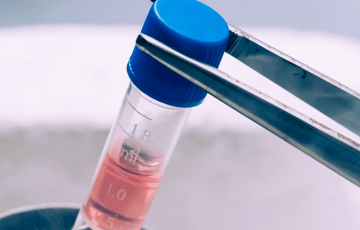Having difficulty getting pregnant can be frustrating for both women and their partners. The stress and anxiety of trying over and over without natural results can be tiring.
If you’ve been trying to conceive for months without success, then you are probably asking yourself:
Should you keep trying, or is it time to consult with a fertility specialist?
The right time to see a fertility specialist
For women:
It can be beneficial for all women looking to conceive to visit a fertility specialist regardless of their health.
But there are a few reasons to consider scheduling an appointment sooner rather than later:
- Possibility of early menopause
If your mother or sister went through menopause before they were 45, your chances of entering menopause earlier are higher.
Once menopause begins, you cannot conceive naturally. If early menopause runs in your family, consider seeing a fertility doctor.
- A history of pelvic disease or surgery
You should visit a fertility specialist if you have a history of pelvic disease or surgery. Both can lead to the development of scar tissue, which can damage your ovaries or cause blockages in the fallopian tubes.
- Failed cycles of Clomiphene or Letrozole
If you have already gone through failed cycles of Clomiphene or Letrozole, it can be frustrating. However, don’t let a few failed cycles prevent you from learning about your options. A fertility specialist can guide you in the right direction.
- Autoimmune diseases
Autoimmune diseases can also make conception more complicated. Hypothyroidism, lupus, rheumatoid arthritis, and other issues pose additional challenges.
A fertility doctor could help you work around autoimmune diseases and make your dreams of starting a family more attainable.
- If you are thinking about delaying childbearing until after 30
As you may know, as you age conception becomes even more difficult. With a diminished number of viable eggs, it can take you even longer to get pregnant.
If you have plans to further delay parenthood, you should consult with a specialist. They can help you make a plan to fit childbearing into your life without having to rush into it.
For men:
The burden of being ready for childbearing is not entirely placed on the woman. Men can also have issues that make the fertilization process more difficult.
For these issues, men are referred to a Urologist who specializes in fertility.
You should visit a Urologist if you:
- Are unable to achieve an erection or ejaculation
It’s very common for couples to have problems conceiving when the man is experiencing diminished sexual functioning.
- Have low sperm count, poor sperm motility or morphology
A low sperm count or poor sperm motility can make fertilization harder.
Sperm count is considered to be low if it’s less than 10 million per milliliter (<10 Million per ml.). Sperm motility is deemed to be poor if it’s below 40% (<40%). And morphology, which refers to the shape and size of the sperm, is considered to be poor if it’s below 4% (<4%)
As a couple:
- If you have tried to conceive for six or more months and the woman is 35 or older
The ability to conceive diminishes as a woman approaches her mid-thirties. As women age, the number of eggs in the ovaries decreases, making it harder to achieve a natural pregnancy.
- History of multiple miscarriages
If you have two or more miscarriages, it’s a good time to consider seeing a fertility specialist. There are many reasons why miscarriages occur:
- It could be due to the natural decrease in viable eggs available.
- Presence of uterine masses.
- Hormonal or immunological abnormalities.
- Chromosomal abnormalities in the embryos.
- And a host of other reasons.
- If you have plans to start chemotherapy
Specific cancer treatments can harm your fertility. The effects might be temporary or permanent.
If you, or your partner, plan to start cancer treatment and want to preserve your fertility, talk to your doctor and a fertility specialist as soon as possible.
How to find the right fertility specialist for you?
Finding the right fertility specialist may be easier than you think. There are many resources that you can rely on:
You can start by asking your primary care physician, OBGYN, or Urologist for a trusted recommendation.
Your friends are another great resource. Of course, if you choose to take a friend’s recommendation, be sure to check out the doctor for yourself as well.
If you don’t have anyone that you know personally, you can check with your local medical society. They can provide you with a list of specialists in your area.
The American Society for Reproductive Medicine and RESOLVE: The National Infertility Association have directories of specialists on hand that they can refer you to.
Another option is to research private fertility clinics in your area and clinics at nearby medical schools or hospitals. Contact the directors to learn more about fertility care at their clinic.
What questions should you ask?
The first few visits to a fertility specialist can be nerve-wracking, but coming prepared helps.
Here’s a list of questions you definitely want to ask:
- How is infertility diagnosed?
- What diagnostic tests would you recommend, and what do they cost?
- How long do the diagnostic tests take?
- How do lifestyle habits affect fertility?
- How does my health affect my fertility?
- What type of treatments do you recommend?
- How successful is each treatment?
- Can you put us in touch with former patients who had similar treatments?
- How much do the treatments cost?
- How soon can I begin treatment?
The answers to those questions will provide you with the tools and information that you will need to move forward on your journey.




